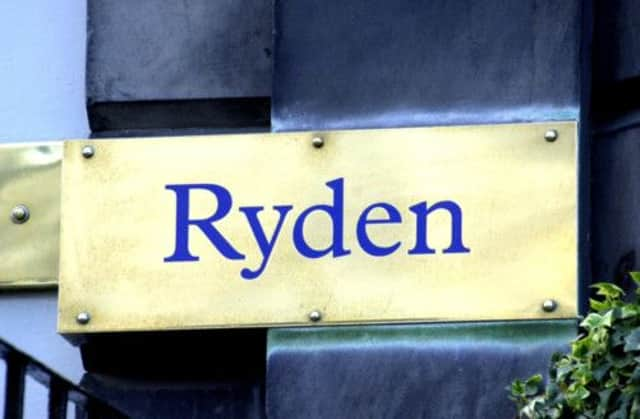Demand for office space ‘at turning point’


However, industry experts believe that demand may cool in the immediate run-up to September’s referendum.
The forecast comes as a major report, due to be published this week, suggests that the growth phase of the property cycle – a key measure of economic activity – has begun.
Advertisement
Hide AdAdvertisement
Hide AdRyden’s Scottish Property Review, published bi-annually, details the major deals that have taken place over the past six months and offers projections for the coming year. The research is seen as a trusted benchmark for the sector.
Mark Robertson, Ryden’s head of consulting and author of the review, said the market was at a “turning point”, with developers poised to sweep back in as the economic recovery gains traction.
He said: “Following five years of structural market weakness, economic growth – and in some areas lack of property supply – has rekindled the occupier markets, which is encouraging development and investment interest.
“In the best locations we can see that take hold through rising take-up and declining vacancies. These are the signals we are always looking at to trigger the next property market cycle.”
He added: “It’s not a boom and bust thing. There’s always a phase in the market where developers and investors are waiting to see strong enough demand before they make their decisions and we are reaching that stage now.”
The report notes a “significant” change in attitude among investors over the past six months, with the Scottish market now “firmly back on the agenda”. It also describes the weight of money driving demand as significant.
Recent deals include the sale of the Calton Square office development in Edinburgh for £57 million, Livingston’s Designer Outlet centre for £52m and the £25.2m purchase of Glasgow’s Sentinel office complex, which is home to Aon and Morgan Stanley.
Robertson said: “At this stage, the question of Scottish independence does not appear to be adversely affecting investor demand, as strategies are formed and decisions made based upon underlying fundamentals and market dynamics.
Advertisement
Hide AdAdvertisement
Hide Ad“With the publication of the [Scottish Government’s] white paper we should be able to understand the full tax-and-spend economic strategy that might come with independence and see if that will have any impact on the market.
“The experience from other countries that have had similar referendums would suggest that there will be a bit of a slowdown towards summer-early autumn next year and then, once the landscape becomes clearer, you would expect to see a resurgence in market interest.”
Robertson said the central London market, typically a big draw for overseas investors, was now overpriced.
He added: “Those investors have been preparing their regional strategies for the past few months and we can now see them getting very, very active and interested in assets across the spectrum.”
The Ryden review comes in the wake of Deloitte’s recent Crane Survey, examining the property markets in key UK cities. It found Edinburgh’s construction sector had returned to health in the past year.
The survey also noted an improvement in Glasgow.